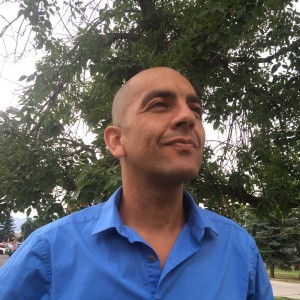We currently offer 12 Curricular Units that have been designed for secondary classrooms:
 “Sxwiwis – The Journey” has been authored by curriculum designer Julie Cajune (Salish). She writes: “A singular historic event can have significantly different outcomes for individuals or groups that are culturally, socially, or economically diverse or dissimilar.”
“Sxwiwis – The Journey” has been authored by curriculum designer Julie Cajune (Salish). She writes: “A singular historic event can have significantly different outcomes for individuals or groups that are culturally, socially, or economically diverse or dissimilar.”
PDF to download: Sxwiwis—The Journey
- “Living within the Four Base Tipi Poles” has been authored by curriculum designers Shane Doyle (Apsáalooke/Crow) and Megkian Doyle. They write: “Despite suffering tremendous loss of life, land, and economy, the cultural values and ideals of the Apsáalooke people have allowed them to continue to grow as a nation and persevere into the 21st century.”
PDF to download: Apsáalooke Basawua Iichia Shoope Aalahputtua Koowiikooluk / Living within the Four Base Tipi Poles of the Apsáalooke Homeland
- “Tribal Oral Traditions and Languages in the Plains Region of the Lewis and Clark Trail” has been authored by curriculum designer Shane Doyle.
PDF to download: Tribal Oral Traditions and Languages in the Plains Region of the Lewis and Clark Trail
- “Traditional Native Games Along the Lewis and Clark Trail” has been authored by curriculum designer Shane Doyle.
PDF to download: Traditional Native Games Along the Lewis and Clark Trail
- “Traditional Economics along the Lewis and Clark Trail: The Missouri Headwaters Before and After the Expedition” has been authored by curriculum designer Shane Doyle.
PDF to download: The Missouri Headwaters Before and After the Expedition
 “Critical Thinking about Maps and Mapmaking” has been authored by curriculum designer Aisling Roche.
“Critical Thinking about Maps and Mapmaking” has been authored by curriculum designer Aisling Roche.
Aisling works at a public high school in Brooklyn, NY, teaching special education in the English Department at the Academy of Urban Planning. She has ten years of teaching experience, offering courses in English Language Acquisition, Model UN, Film Studies, Introduction to Visual Arts, Earth Science, Living Environment, and Algebra! She is a Phi Beta Kappa graduate of the University of Chicago and holds a Masters from Long Island University.
PDF to download: Critical Thinking about Maps and Mapmaking

“There There by Tommy Orange, the Importance of Place, and Contemporary Native American Communities“ has been authored by curriculum designer Miriam Rock.
Miriam Rock currently lives in Philadelphia and is teaching high school English at Friends Select, a local Quaker school. She did her undergrad at Yale and her masters at Penn. She spent three years living in Maryland and working at Sandy Spring Friends School. During her time at Sandy Spring, Miriam had the good fortune to lead a week-long service trip to New Mexico and spend time getting to know a Navajo weaver and Zuni Mission muralist. In addition to two sophomore classes, she is teaching a junior American Literature course and a senior elective, titled “Race, Gender and Nationality in Literature.”
PDF to download: “There There by Tommy Orange, the Importance of Place, and Contemporary Native American Communities”
 “‘Survivance’ and the Native American Civil Rights Movement, Late 1960s-Present” has been authored by curriculum designer Sage Hatch.
“‘Survivance’ and the Native American Civil Rights Movement, Late 1960s-Present” has been authored by curriculum designer Sage Hatch.
Sage Hatch was born and raised in Siletz, Oregon, and currently works with the Native American Youth and Family Center in Portland. Sage has spent his career working in Education, specializing in work with indigenous youth across multiple disciplines, teaching Social Studies at the Siletz Valley Early College Academy, working in the career, and transitional skills in Northeastern Montana on the Fort Peck Reservation, Natural Resource education, and several others. He holds a Master’s of Education (MEd) in Teaching and Curriculum Development from the University of Oregon’s Sapsik’ʷałá program in partnership with UOTeach.
PDF to download: “Survivance” and the Native American Civil Rights Movement, Late 1960s–Present
 “The Enduring Legacy of Colonialism: Indian Mascots” has been authored by curriculum designer Norrine Smokey-Smith.
“The Enduring Legacy of Colonialism: Indian Mascots” has been authored by curriculum designer Norrine Smokey-Smith.
Norrine Smokey Smith (M.Ed) is a retired program administrator from Portland Public Schools. She has been a staunch advocate for Native student equity and achievement as well as parent and community involvement. While directing the Indian Education Project, she founded the Native Montessori Program for preschool children in Portland Public Schools. Throughout her professional career, Norrine has contributed to the development of a number of publications for teacher education including You Make the Difference, the American Indian Baseline Essays, and Indians in Oregon Today. She has also written teacher fact sheets for the Native American Parent Technical Assistance Center funded by the Office of Special Education. Post-retirement, Norrine continues to serve on several local Native and Non-Native boards. She is an enrolled member of the Washoe Tribe of Nevada and California and a former Tribal Council member.
PDF to download: The Enduring Legacy of Colonialism: Indian Mascots
 “Honoring the Warrior Spirit” has been authored by curriculum designer Casie Wise.
“Honoring the Warrior Spirit” has been authored by curriculum designer Casie Wise.
Dr. Casie Wise in the Education Specialist for the National Indian Education Association. She brings 20 years of classroom, leadership, and consulting experience to NIEA. Dr. Wise specializes in culture-based curriculum and pedagogy, professional development for educators, best practices in assessment, and educational research. In addition to twelve years of teaching middle and high school ELA in the United States and abroad, her roles include work as an EdReports Klawe Fellow, Teach Plus Policy Fellow, K-12 school support director, instructional coach, core advocate for Tennessee, literacy advisor, curriculum reviewer, and education consultant. In her role at NIEA, Dr. Wise manages multiple grants for developing curriculum and instructional resources, cultivates partnerships with other education organizations, and provides professional development and oversight for our Educator Initiative.
Dr. Wise resides in her hometown of Memphis, Tennessee, with her husband, who is a retired Navy veteran, and her son and daughter. She has a BSE in Secondary English Education from John Brown University in Arkansas, an MA in Teaching English as a Second Language, and a doctorate in Curriculum and Instructional Leadership both from the University of Memphis.
PDF to download: Honoring the Warrior Spirit
 “Sovereignty and the Muscogee (Creek) Nation, Today and in History” has been authored by curriculum designer Anne Gregory.
“Sovereignty and the Muscogee (Creek) Nation, Today and in History” has been authored by curriculum designer Anne Gregory.
Anne Gregory is a recent graduate of the Conflict and Dispute Resolution Master’s program at the University of Oregon School of Law, where she also received a Bachelor of Arts in History. She has a background in education working as a learning specialist assistant in collegiate athletics. Her current research places family history in the context of disability studies, looking at allotment in the Muscogee/Creek community at the turn of the 20th century.
PDF to download: Sovereignty and the Muscogee (Creek) Nation, Today and in History
“Sacred Spaces and National Parks” has been authored by curriculum designers Joseph Scott and Crystal Boulton-Scott.
PDF to download: Sacred Spaces and National Parks
Crystal Boulton-Scott grew up in Trenton, New Jersey, and is of Rancocas Lenape and Roman Italian immigrant descent. She relocated to Oregon and has spent the last 20 years working in support of tribal education. Her experience with efforts to preserve and promote tribal languages at the elementary level has led her to craft unique teaching and learning opportunities. Crystal is also a professional silversmith and illustrator, and incorporates these artistic talents – as well as her expertise in the crafting of traditional cultural arts – in her work with young people.
Joseph C. Scott is a member of the Confederated Tribe of Siletz Indians; the son of Lorna Avery Scott and Robert A. Scott. His ancestors include the Takelma People of the Upper Rogue River Valley. Joseph is a traditional dancer, singer and artisan, and is recognized as a Language and Culture Bearer by the Siletz Tribe. He has always made his home in Oregon, and is dedicated to preserving and promoting traditional indigenous ways of knowing. Joe has spent his life in Oregon, learning and teaching traditional values of place, self, and spirit. Joe has a Masters of Science in Education; Curriculum and Instruction from Portland State University, and after nearly twenty years of teaching Tribal history, language, culture, and values on the Siletz reservation, he has continued on to share his education and experience in Tribal education with indigenous communities locally, across the country, and abroad.




